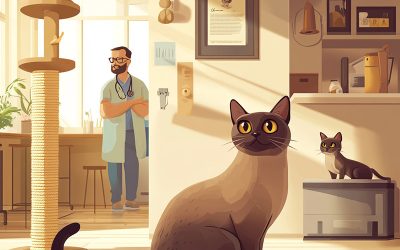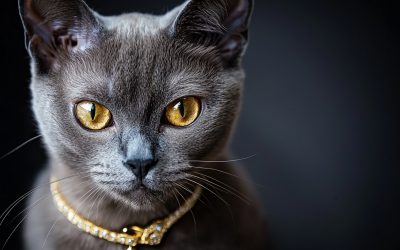How to Spot Depression in Your Cat: Causes and Remedies
Cats are often seen as independent, carefree animals, but just like humans, they can experience depression and emotional distress. Unlike dogs, who wear their emotions on their paws, cats can be subtle when they’re feeling down, making it harder for owners to recognize the signs. If your cat has become withdrawn, lost interest in play, or changed their eating habits, they may be struggling with depression.
This guide will help you understand the causes, symptoms, and remedies for feline depression so you can support your cat’s mental well-being.
Can Cats Get Depressed?
Yes, cats can experience depression, stress, and anxiety, just like humans. While they don’t have the same emotional complexity as people, they can feel sadness due to environmental changes, loss, or health issues.
Cats rely on routine and familiar surroundings to feel safe. When something disrupts their sense of stability, it can affect their mood and behaviour.
Depression in cats can be temporary or long-term, depending on the cause. Identifying the signs early can help you take action before it becomes a serious issue.
Signs of Depression in Cats
1. Withdrawal and Hiding
📌 If your normally social cat suddenly starts hiding under furniture or avoids people, this could be a sign of depression.
2. Loss of Interest in Play and Activities
📌 Cats love to play, explore, and hunt, even indoors. A sudden lack of interest in toys, climbing, or scratching posts may indicate a drop in mood.
3. Changes in Eating Habits
📌 Some depressed cats eat less or stop eating altogether, while others overeat due to stress. Sudden weight loss or gain is a red flag.
4. Excessive Sleeping
📌 While cats sleep a lot (12–16 hours a day), a depressed cat may sleep even more than usual and avoid interaction.
5. Changes in Grooming Habits
📌 A cat that stops grooming may be feeling depressed or unwell. Conversely, excessive grooming (licking one spot until bald patches appear) can be a sign of anxiety.
6. Increased Vocalization or Silence
📌 Some depressed cats become more vocal, meowing mournfully or yowling. Others become unusually quiet and stop their usual chirps and purrs.
7. Avoiding the Litter Box
📌 Stress and depression can cause inappropriate urination, even in well-trained cats. This may be a sign of emotional distress.
8. Aggression or Irritability
📌 A normally friendly cat that suddenly becomes aggressive, hisses, or swipes at people or other pets may be struggling emotionally.
Causes of Depression in Cats
1. Loss of a Companion (Human or Animal)
📌 Cats form strong bonds with their owners and other pets. The death of a family member or another pet can cause grief and depression in cats.
2. Major Changes in Routine or Environment
📌 Moving to a new home, a new baby, or even rearranging furniture can stress out a cat and lead to depression.
3. Boredom and Lack of Stimulation
📌 Indoor cats, especially those left alone for long hours, can become bored and depressed if they don’t get enough mental or physical stimulation.
How to Help a Depressed Cat
1. Give Them More Attention
- 🐾 Spend extra time petting, brushing, and talking to your cat.
- 🐾 If your cat enjoys cuddles, offer more lap time.
2. Encourage Play and Exercise
- 🐾 Use interactive toys like wand toys, laser pointers, and puzzle feeders to keep your cat engaged.
- 🐾 Rotate toys regularly to prevent boredom.
When to Seek Professional Help
If your cat’s depression lasts for more than a few weeks or worsens despite your efforts, consult a veterinarian or feline behaviourist.
🚨 Signs that require immediate vet attention:
- ❌ Sudden drastic weight loss or refusal to eat for more than 24 hours.
- ❌ Extreme lethargy or lack of response to stimuli.
- ❌ Aggressive behaviour that is out of character.
Final Thoughts on Feline Depression
"Cats do speak, but only to those who know how to listen." – Sigmund Freud
If your cat is acting unusual, it’s important to pay attention. Depression in cats can be a sign of stress, loneliness, or a medical issue. By providing love, attention, and a stimulating environment, you can help your cat regain their happiness and well-being.



0 Comments